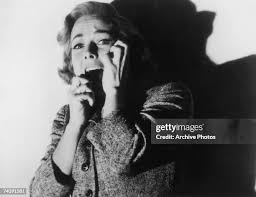Alfred Hitchcock’s Psycho: A Pioneering Horror Classic

Introduction
Alfred Hitchcock’s “Psycho,” released in 1960, is widely regarded as a landmark film in the horror genre. Its importance extends beyond mere entertainment, as it reshaped the landscape of suspenseful storytelling and the psychological thriller genre. With its innovative techniques and groundbreaking narrative, “Psycho” has maintained cultural relevance for over six decades, influencing countless filmmakers and leaving an indelible mark on cinema.
Background and Influence
The story follows Marion Crane, played by Janet Leigh, who steals a large sum of money and checks into the ominous Bates Motel, managed by the enigmatic Norman Bates, portrayed by Anthony Perkins. The film’s plot takes a shocking turn with the infamous shower scene, where Marion meets her untimely fate. This scene embodied Hitchcock’s mastery of suspense and shock, cementing itself in cinematic history.
Hitchcock employed groundbreaking techniques in “Psycho,” such as the use of music by composer Bernard Herrmann, whose score heightened the tension, and the decision to shoot in black and white, which added a layer of eeriness to the visual experience. The psychological depth of the characters, particularly Norman Bates, who was based on real-life murderer Ed Gein, added a chilling authenticity to the film.
Cultural Impact
Upon its release, “Psycho” received a mixed critical reception, with some praising its innovation and others deeming it too disturbing. However, over time, it has been re-evaluated and is now celebrated as one of the greatest films ever made. The American Film Institute has ranked “Psycho” as the 14th greatest American film of all time, and the film’s influence can be seen in numerous works that followed, from horror movies to television series.
Psycho’s legacy extends to its iconic imagery and quotes, including Bates’ famous line, “We all go a little mad sometimes.” Its narratives of psychological duality and moral ambiguity have inspired discussions within literary and cinematic circles alike. Directors such as Brian De Palma and more recently, Jordan Peele, have cited Hitchcock’s work as a fundamental influence on their own storytelling techniques.
Conclusion
Alfred Hitchcock’s “Psycho” remains a pivotal work in film history, not only for its innovative approach to suspense but also for its exploration of the human psyche. As audiences continue to engage with its rich themes and iconic moments, the film’s relevance endures. Future filmmakers will likely draw inspiration from Hitchcock’s daring approach, ensuring that “Psycho” continues to resonate with new generations, highlighting the timeless nature of great storytelling.
